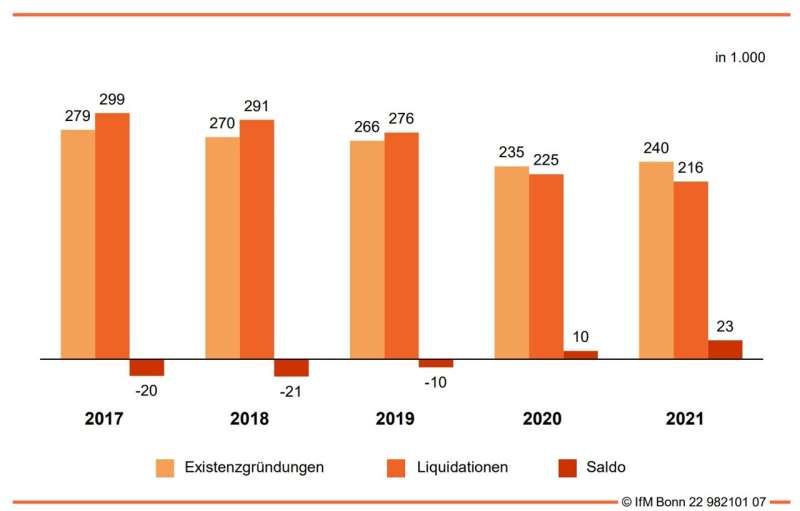This article has been reviewed according to Science X's editorial process and policies. Editors have highlighted the following attributes while ensuring the content's credibility:
fact-checked
proofread
Companies in Germany are adapting to the consequences of extreme weather events

German Executives are most concerned about the impact of hot weather and heavy rains on their companies' operations. Apart from this, however, they also have an awareness of the consequences of climate change on their value chains. This is revealed by the current IfM survey of more than 1,300 managing executives on the current Climate Adaptation Week of the Federal Ministry for the Environment.
In the last five years, many entrepreneurs in Germany have experienced the consequences of climate change: extreme weather events have already impacted their entrepreneurial business activities. Companies from agriculture, energy and water supply, and the hospitality industry were particularly affected. According to a survey by IfM Bonn, managers of small and medium-sized enterprises (SMEs) and large companies perceive the effects of heat periods and heavy rainfalls as particularly threatening.
The degree of engagement with "climate risks" depends very much on the personal opinions of the company owners, managers, and employees. In contrast, media coverage, information, and awareness-raising activities by politics or associations play a less important role.
Companies see risks in their value chains
Companies in Germany may also be affected by climatic impacts in the regions of their suppliers or customers, regardless of whether they are affected directly. Although the companies consider the risk of the business being affected by a disruption in the supply chain not low, only a minority are intensively dealing with the possible effects of climate risks on their suppliers or customers.
Concrete risk reduction measures are mainly implemented in energy supply and customer diversification. The results suggest that the scope for action of small and medium-sized enterprises, particularly regarding their supply chain risks, is significantly more limited compared to large companies due to their lower purchasing volumes and resources.
More information: Report (in German): www.ifm-bonn.org/fileadmin/dat … d_-aufgaben_2021.pdf
Provided by Institut für Mittelstandsforschung (IfM) Bonn



















